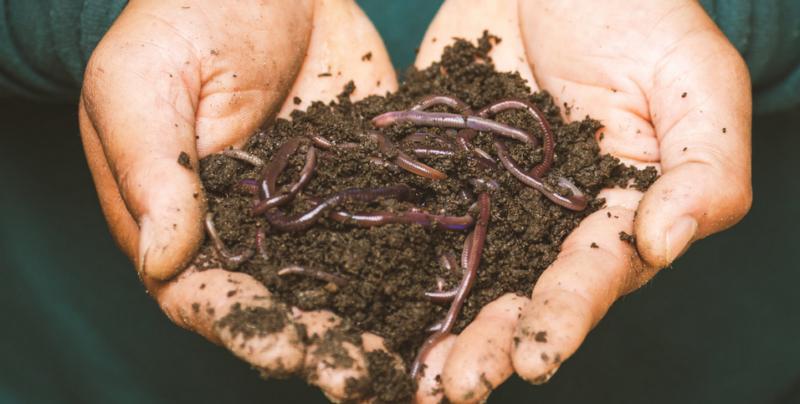Innovative Home Composting Techniques

The Journey to Composting Enlightenment
Composting is not for the faint of heart, no sir. It's a dance with the devil, a flirtation with the forces of nature, and a daring endeavor that only the fearless dare to partake in. But once you step into this mystical world of decomposing organic materials, you may find you've unlocked a portal to gardening glory, and there's no turning back. So buckle up, compatriots, and let's explore the innovative home composting techniques that will take your eco-warrior status to new heights.1. The Worms Shall Inherit the Earth
Enter the realm of vermicomposting, where worms become the heroes of your composting crusade. In this method, you create a suitable habitat for these wiggly workhorses by providing them with kitchen scraps, shredded newspaper, and a dark, moist environment. The worms will then consume the organic waste, and through a miraculous transformation, produce a nutrient-rich compost known as worm castings. These castings are regarded as the black gold of the gardening world, and will make your plants grow as if they'd been touched by the hand of Dionysus himself.- How-to: Begin with a plastic container or wooden box, and add a layer of moist bedding materials such as shredded newspaper or coconut coir. Introduce red wigglers or red earthworms (avoid using nightcrawlers or common garden worms), and add a handful of kitchen scraps. Ensure the container remains dark and moist, and watch the magic unfold.
2. The Tumbler's Waltz
Take a spin on the wild side with a compost tumbler, a sophisticated contraption that allows you to aerate and mix your compost with the finesse of a seasoned ballroom dancer. The tumbler is an enclosed container that can be rotated, ensuring rich air circulation and even distribution of moisture and heat. The result is a speedy decomposition process that takes center stage in your composting odyssey.- How-to: Fill your compost tumbler with a balanced mix of green and brown materials (nitrogen-rich and carbon-rich, respectively), such as grass clippings, leaves, and kitchen scraps. Keep the contents moist, but not soggy, and give the tumbler a whirl every few days to maintain a well-aerated environment.
3. Bokashi: A Tale of Ferment and Foliage
For a more exotic composting experience, immerse yourself in the ancient Japanese art of Bokashi. This method involves fermenting organic waste in an anaerobic environment, using a special blend of microorganisms to break down the material. The end product can be directly mixed into your garden soil, providing an instant feast for your plants and a fascinating conversation starter at your next garden party.- How-to: Obtain a Bokashi bucket (or make your own) and a supply of Bokashi bran. Layer your kitchen waste in the bucket, sprinkling each layer with the bran to inoculate the material with the beneficial microorganisms. Seal the bucket tightly to create an anaerobic environment, and drain off any liquid that collects at the bottom. When the bucket is full, let it ferment for a couple of weeks, then mix the contents into your garden soil.
4. Hot Composting: The Fires of Creation
If you're looking to dabble in the extreme sport of composting, look no further than hot composting. This method requires a more substantial initial investment of materials and labor, but the reward is a rapid decomposition process that produces a steaming pile of nutrient-rich compost in as little as 30 days. Embrace your inner Prometheus and unleash the heat of biological activity to create the ultimate garden elixir.- How-to: Construct a large compost bin or designate a space in your yard, and gather a substantial amount of green and brown materials. Assemble the materials in a layered fashion, ensuring a proper balance of nitrogen and carbon, and wet the pile as you build it. Turn the pile regularly to maintain aeration and even heating, and monitor the temperature to ensure it reaches 130-160°F, which will help to kill weed seeds and pathogens.
Article kindly provided by yourhomengarden.org
Latest Articles
- Bed Size Psychology and the Quiet Power of Space
- Why Your Front Door Fails Before the Lock Does
- How Tiny Entry Points Turn Into Big Pest Problems
- Why Soil pH Matters More Than You Think for a Healthy Lawn
- Hidden Energy Loss at the Roofline and How to Fix It
- Moisture Mischief and Wooden Floors: What Your Boards Are Trying to Tell You
- Foot Traffic Maps: How to Strategically Protect High Wear Areas on Wood Floors
- Clearing the Clutter Without Losing the Plot
- Why Damp Feels Worse in Some Rooms Than Others
- The Hidden Health Benefits of a Deep Clean
- Uncommon Ways to Estimate Waste Volume Before a Cleanup Project
- How to Spot and Tackle Hidden Moisture Problems Before They Become Renovation Nightmares
- How Underground Pipe Issues Can Lead to Structural Damage
- Simple Design Tricks That Encourage Backyard Biodiversity
- Why Your Showerhead Is Suffering From a Mineral Midlife Crisis
- Gateways That Turn Heads While Keeping Your Property Safe
- Listening Pipes: Using Sound to Diagnose Hidden Home Plumbing Issues
- Small Changes That Make a Kitchen Feel Completely New
- Scents That Refuse to Leave and How to Outwit Them
- How Personalisation Makes Homewares Feel Special
- Interior Design
- Home Improvement
- Gardening
- Home Organization
- Home Maintenance
- DIY Crafts
- Kitchen and Dining
- Bathroom Design
- Home Security
- Home Automation
- Green Living
- Home Office
- Home Decor
- Garden Design
- Pet Care
- Home Technology
- Landscaping
- Home Energy Efficiency
- Home Cleaning
- Home Safety
- Home Exterior
- Home Insulation
- Home Buying
- Home Selling
- Renting
- Tradespeople
- Garage
- Bedroom
- Painting and Decorating
- Plumbing and Drainage

